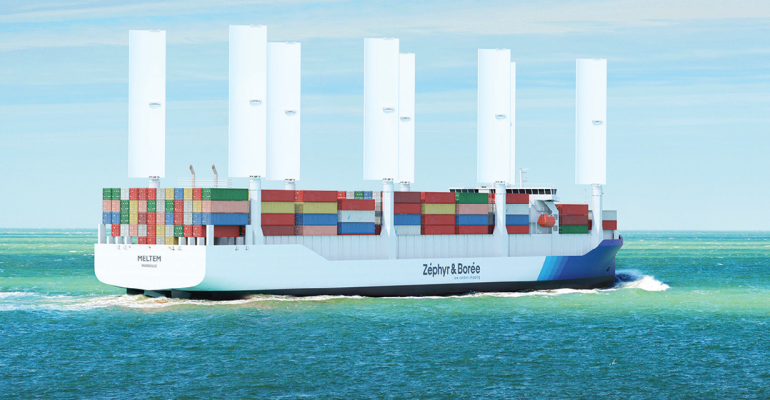Only with trust can the new fuels, designs and technologies needed to decarbonise the industry become a reality and this makes the role of classification more important than ever, he told Posidonia Today.
The range of options being developed today to reduce emissions from shipping is quite extraordinary, he said. From engines capable of burning hydrogen or ammonia as fuel, to voyage optimisation software, to a wide range of kites and sails that harness the power of the wind to curb fuel consumption and emissions.
However, much of this new landscape remains uncharted, he pointed out. Although the decarbonisation ambitions were set before the technology to achieve them was even available, technology is now evolving faster than the regulations needed to apply it safely. For individual shipowners, therefore, retrofitting innovative clean tech solutions on their existing vessels, or building vessels so they can burn a zero-carbon fuel not yet available at scale, can feel like a leap of faith.
After all, not all shipowners have the luxury of fleets so large that they can gamble on one or several options without putting the future of their company in jeopardy should they make the wrong bet. This is an issue that particularly resonates in Greece, the world’s largest shipowning nation, controlling about 20% of the global fleet – and therefore having to make the bulk of decisions that will affect the entire industry, and in doing so will impact the world’s climate ambitions.
Given the level of investment at stake, owners want reassurance that new technologies are safe, reliable, and will deliver the emissions reductions they promise, he continued. This is where classification societies play a fundamental role, providing the trust, expertise and validation needed to support safe innovation.
In tangible terms, this means supporting industry pioneers, in Greece and around the world, as they develop and deploy innovative solutions to decarbonise their vessels. BV works closely with shipowners, shipyards and technology developers, he said, helping them assess and mitigate risk, and validating their compliance with rules and regulations. Following a tried-and-tested approach, BV is currently helping Jiangnan Shipyard Group develop the world’s largest ammonia-powered Very Large Ammonia Carrier (VLAC), with a capacity of 93,000 cu m.
Another example is its partnership with wind propulsion pioneer Zéphyr & Borée. BV has validated the company’s unique concept of wind-propelled wing-sails for an open-top 1,800 teu container ship. Involved from the very early stages, BV has meticulously reviewed designs to ensure the feasibility of the concept and identify any obstacles.
“As an industry, we know that action is needed to ensure our fleets are ready for the challenges ahead,” de Tugny declared. “We also know that doing the right thing for our oceans, for the planet and for the bottom line can be aligned. Achieving our common goals will require unprecedented innovation – and collaboration. Our role at BV is to unite industry pioneers by challenging and by validating, thereby creating a world of trust.”
This article first appeared in the Wednesday June 8 2022 edition of Posidonia Today, the show daily publication for Posidonia. Read the full edition here.
Copyright © 2024. All rights reserved. Seatrade, a trading name of Informa Markets (UK) Limited.
Add Seatrade Maritime News to your Google News feed.  |

